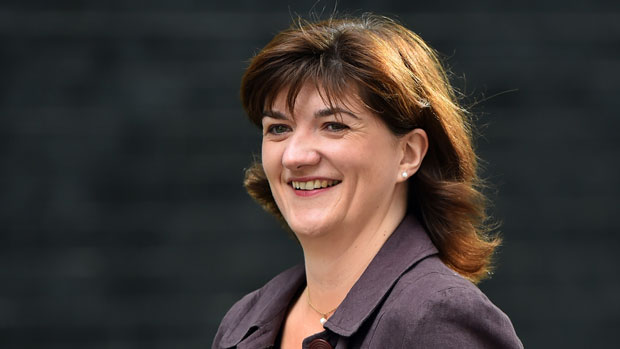Characterless peas in a pod: the reshuffle of the bland
Few politicians today have had real, demanding jobs before entering politics – and it shows

A free daily email with the biggest news stories of the day – and the best features from TheWeek.com
You are now subscribed
Your newsletter sign-up was successful
Would you cross the road to shake hands with any of the new members of the Cabinet? Would you indeed recognise them should you run into them? The answer to both questions is probably ‘No’.
Tired prime ministers, leading exhausted governments, have a mystical faith in ministerial shake ups. Harold Macmillan sacked seven members of his Cabinet in 1962 in the ‘Night of the Long Knives’: it proved as futile in restoring his government’s popularity as erecting a sand barrier to halt a tsunami.
Jeremy Thorpe, Liberal MP and political wit, caught the mood of the moment with the line: “Greater love hath no man than this, that he lay down his friends for his life…”
The Week
Escape your echo chamber. Get the facts behind the news, plus analysis from multiple perspectives.

Sign up for The Week's Free Newsletters
From our morning news briefing to a weekly Good News Newsletter, get the best of The Week delivered directly to your inbox.
From our morning news briefing to a weekly Good News Newsletter, get the best of The Week delivered directly to your inbox.
So, while inhabitants of the Westminster village froth with excitement about who’s in and who’s out, most voters will merely lament the disappearance of Kenneth Clarke, the last of a breed, hastening to the cricket at Trent Bridge in his Hush Puppies; be surprised that William Hague is calling time on politics at a relatively young age; be happy to see Michael Gove booted out of the classroom; but otherwise remain largely unmoved. Shuffling a pack of political cards is no longer a gripping spectator sport.
Why should this be? Is the answer that most of those sufficiently ambitious to be considered for Cabinet posts are colourless clones? Trying to live up to his promise of more women ministers, David Cameron has raided his tiny team of female MPs and stuck a few feminine faces on the front bench. Will this mean that women’s rights and interests will henceforth get greater priority? Doubtful.
The satirical magazine, Private Eye, commemorates such a desperate changing of the guard as we have seen this week with pictures of non-people above fatuous captions extolling their non-abilities. We have now reached a point almost beyond satire.
Put a face to one of the following: Patrick McLoughlin; Stephen Crabb; Nicky Morgan; Michael Fallon; Sajiv Javid; Theresa Villiers – all in the Cabinet. Now put a Cabinet position next to their names: most of us would make a better fist of naming football teams and the positions in which the players play. Commentators speak of "a safe pair of hands”, scarcely a term to set the pulse racing.
A free daily email with the biggest news stories of the day – and the best features from TheWeek.com
This bland, (largely and often) characterless, uniformity means that voters have become increasingly distant from (and uninterested in) the people who rule them: the reason is that few politicians any longer offer anything original. The number of voters turning out at the polls drops election on election. For many it no longer matters who wins – it is a widespread opinion that election results are now largely immaterial.
Few politicians today have a hinterland as did the men and women of yesteryear: real, demanding jobs before politics – school teachers; coal miners; railwaymen; business people; they wrote books on a wide range of subjects (former Cabinet minister Douglas Hurd even wrote thrillers); they had other lives far removed from politics.
Roy Jenkins and Michael Foot, biographers and writers of stature; Harold Macmillan, publisher and veteran of the Great War; Tony Crosland, who really did think outside the box; Barbara Castle, flame-headed firebrand and journalist; Churchill, of course, writer, artist, bricklayer; Michael Heseltine, founder of the Haymarket Press; Margaret Thatcher, whatever one thought of her policies; Were these titans against today’s pygmies or is that just rose-tinted nostalgia?
Of course, most politicians have had 'jobs' before entering Parliament, but they tend to be either related to politics or of a presentational kind: Cameron himself was in public relations (for Carlton TV). And one of those not actually promoted but now allowed to sit in Cabinet with the grown-ups following the reshuffleis a former TV presenter, Esther McVey, shown on BBC News lying on a sofa. Neither her nor Cameron's occupations involved much heavy lifting.
Does anyone now resign because of political failure (and there is no shortage of that)? Where are the Peter Caringtons, who in 1982 quit as Foreign Secretary for failing to anticipate that Argentina was about to invade the Falklands?
The lack of experience outside politics and the peas-in-a-pod similarity among many on the green leather Commons benches has had another consequence – the growing popularity of those who appear ‘real’ people. This too can be dangerous, threatening the nation with populist leadership with easy, but often irrelevant, answers. Why do people vote for the largely policy-free Ukip? Answer: Nigel Farage. How can the Tories win the City Hall in left-leaning London? Answer: Boris Johnson.
Despite such evidence as the MPs’ expenses scandal, I don’t subscribe to the “they’re only in it for themselves” school. But a healthy democracy will not be restored until politicians again have non-political lives outside the bubble. Politics is too important to be left to professional politicians. Cameron’s reshuffle was little more than a rearrangement of the deck chairs on the Titanic.
His aim was ostensibly to freshen his team and redress the balance between men and women. In reality it has been – like Macmillan’s Night of the Long Knives 52 years ago – a frantic attempt to address a government’s limping performance.